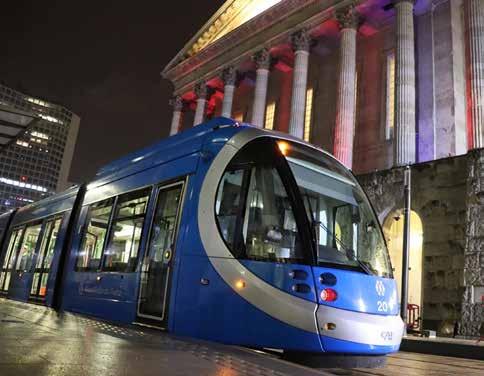
2 minute read
Addressing the Climate Emergency: Louise Wyman
Louise Wyman
Question: ‘What should built and natural environment practitioners do next to tackle climate change?’ Collaborate – the time is now! On the eve of 2020 the environmental design, planning and construction sector is central to our country’s future development. Yet how do we responsibly build the UK’s future at a moment of global climate emergency?
We urgently need to modernise our national infrastructure; address our housing crisis and create future spaces for education, culture, business, healthcare, sport and recreation. Collectively we need to design inventive solutions to the climate challenges we all face. Professions that best understand the built and natural environment are best placed to respond creatively to our climate emergency, but the clock is ticking – the time is now!
Collaboration between landscape architects, environmental scientists, ecologists, engineers, urban designers, surveyors, developers, planners and architects nationally and internationally, is more important than ever to design and develop new ways of responding systemically and progressively to climate change.
In my role as Design Lead for West Midlands Combined Authority I work with our many partner organisations, regional experts and Mayor Andy Street’s office to understand and quantify the scale of our regional climate challenge. We consult closely with the scientific community, young climate change protestors, local experts, academics and environmental practitioners. This led us to declare a regional Climate Emergency in summer 2019 and commit to becoming carbon neutral by 2041 at the latest. In September we committed to ditching the use of single use plastics across our organisation by the end of 2020.

Testing is underway on the new tram extension outside Birmingham Town Hall
© Midland Metro Alliance
Future initiatives we’ll develop in collaboration with environmental partners include:
1. Designing nature into our towns cities. The West Midlands has an ambition to become a National Park City. We’re working with the Landscape Architecture department at Birmingham University, NHS England, Sport England, Natural England and regional partners to diversity and enrich our regions’ ecology. Alongside providing new spaces for wildlife, sport and recreation, we see new urban parks, footpaths and bike trails as central to the wellbeing of our diverse communities. We’re proud to be hosting the Commonwealth Games in Birmingham in 2022.
2. Becoming a centre of excellence for modular construction. The West Midlands has the fastest growing GDP outside London. Birmingham has more 3 start-up businesses than any other UK city. Construction is a core industry, as we build our future we plan to do so in a responsible way, using modular construction, renewable materials and energy to minimise construction waste. We welcome businesses and creative industries that share this ambition and want sustainable modular construction to thrive in our geography.
3. Providing excellent public transport to minimise car traffic. Transport West Midlands is central to WMCA’s activity and is providing our region with new rail stations, fuel efficient trains, trams, clean buses, cycle paths and canal trails. New world class public transport systems, offer an efficient and enjoyable alternative to car use.
In November 2019 Andy Street will launch the West Midlands Design Charter. This will set the high level principles for our region’s development and our ambitions for sustainable service provision.
We invite all practitioners who share our mission of responsible inclusive growth to bring your ideas and businesses to the West Midlands, we’d love to hear from you.
Louise Wyman is design and growth lead at West Midlands Combined Authority.









